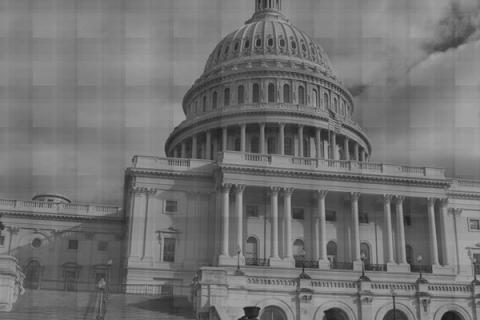The GOP has not historically been the party of the First Amendment. In the most explosive political debates since the Second World War — from the McCarthyite purges of the 1950s to the flag burning debates of the 1990s to Bush-era speech restrictions — the establishment right has tended to elevate other priotities (conformity, order, national security) above liberty of expression. Progressive journalists and politicians have generally been the champions of freedom of speech. But all this is changing.
The most recent example is the Obama administration’s adoption of an astonishingly broad definition of sexual harassment on college campuses. Under the provisions of a joint letter issued May 9 by the Departments of Justice and Education, universities must put in place unprecedented speech codes or risk losing federal funding. Eugene Volokh, a UCLA law professor and first amendment expert, has one of the best summaries of the mandate:
Under these speech codes, universities would be required to prohibit students from, for instance,1. saying “unwelcome” “sexual or dirty jokes”2. spreading “unwelcome” “sexual rumors” (without any limitation to false rumors)3. … “circulating or showing e-mails of Web sites of a sexual nature”4. engaging in “unwelcome” “display[] or distributi sexually explicit drawings, pictures or written materials”5. making “unwelcome” sexual invitations.This is not limited to material that a reasonable person would find offensive. Nor is limited to material that, put together, creates a “hostile, abusive, or offensive educational environment.” … Every instance of such material of a “sexual nature,” under the government’s approach, would be “sexual harassment” and would need to be banned.”
Greg Lukianoff, the president of the nonpartisan Foundation for Individual Rights in Education, pointed out in a Wall Street Journal op-ed that under the mandate, “an unsuccessful request for a date, or even assigning a potentially offensive book like ‘Lolita,’ could now be construed as harassment.” He is barely hyperbolizing when he says “the right not to be offended has been enshrined in federal mandate.”
If there are any authorities on First Amendment law outside the employ of the Obama administration who support this Orwellian policy, I am not aware of them. But what’s remarkable is that virtually all of the defenses of free speech in the wake of the mandate have come from conservative media outlets like WSJ, The American Spectator, CATO, Campus Reform, The Washington Times, The Manhattan Institute, and so on. ThinkProgress, on the other hand, said the policy is “a step in the right direction to ensure that students' concerns are being heard."
My point isn't just to criticize this indefensible policy, which has already been torn to pieces by Volokh, Lukianoff and other experts. It’s to illustrate an important shift taking place in American politics: the left's slow retreat from its historical position as the primary champion of the First Amendment.
As the Democratic party has grown more assertive in its social progressivism over the past few years, its enthusiasm for free expression has waned. A few examples: Last year, Democratic mayors sought to expel Chik-fil-A from their cities because its president opposes gay marriage. A few months later the Obama administration pressured Google to remove an offensive anti-Muslim video from the internet. And in April of this year, left-wing groups launched a campaign to urge Rochester University to fire a professor for posting a thought experiment about sex and consent on his blog.
All these efforts to restrict speech represent earnest attempts to advance worthy goals — like inclusiveness for gay people, sensitivity toward Muslims' religious traditions or women's safety. But the recent wave of left-wing attempts at censorship, culminating with the federal harassment speech code, make it abundantly clear that large factions on the left don't seem to care if they abandon the first amendment on the way to social progress. This puts conservatives in the unprecedented position of being the guardians of free expression.
Perhaps the contrast between the left and right on free speech is made more vivid by the ascent of the Rand Paul wing of the Republican party, which stresses civil liberties and individual freedom, and the decline of social conservatives intent on banning pornography and flag-burning. And of course, the fact that a Democratic administration is currently in office makes it easier for Republicans to criticize federal overreach on speech issues.
But at their most basic level, the latest developments in First Amendment politics simply confirm a maxim about freedom of speech: While it is very easy to employ the first amendment to defend speech you like, it's much harder to defend speech you don't like. Political appeals to free speech are usually selective.
Fifty years ago, liberals defended victims of Communist witch hunts less because of a moral commitment to free expression than because they disliked the morally absolutist right-wing Cold War synthesis. Republicans' twenty-first century rediscovery of the First Amendment in the context of debates over sexual orientation, race and gender may likewise be more motivated by politics than principle. But it is a welcome development nonetheless.
I invite you to follow me on Twitter or email me at jawillick at gmail dot com.
